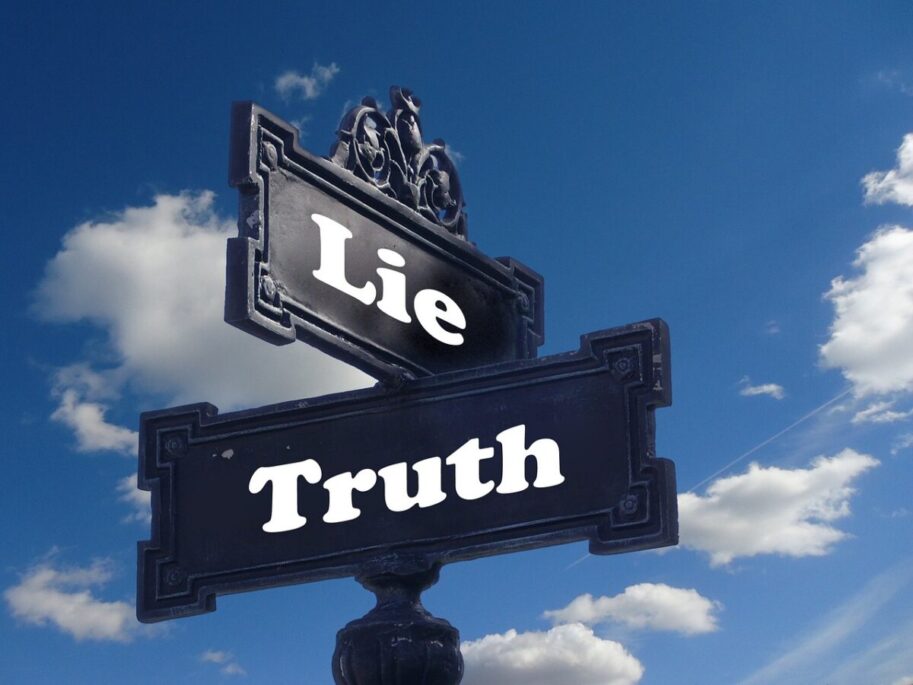It is better to trust God and His plan than to be held captive by illusions and live with unjustified expectations.
Better a bitter truth than a sweet lie.
Better unknown with God than destructive self-confidence.
It is better to listen to the accusations of the prophets than the pleasant inventions of false prophets.
The trouble is, even knowing all this, we still swallow the sweet bait again and again.
After all, false prophets rarely say bad things. Most often, they play on the good hopes of people and promise them a quick improvement.
The whole problem is in the word “quick”.
False prophets do not know the will of God, but they pretend to be messengers of good news from God and confidently set very specific dates.
So the self-proclaimed prophet Hananiah predicts a rather quick deliverance – suffer just two years and everything will work out:
“Thus says the Lord of hosts, the God of Israel: I will break the yoke of the king of Babylon; after two years I will return to this place all the vessels of the house of the Lord, which Nebuchadnezzar king of Babylon took from this place and carried them to Babylon; And Jeconiah the son of Jehoiakim king of Judah, and all the captives of the Jews who came to Babylon, I will return to this place, says the Lord; for I will break the yoke of the king of Babylon ”(Jer. 28: 2-4).
Against the background of Jeremiah’s gloomy prophecies, this word was like oil on the soul.
If Jeremiah says that the Jews will serve the king of Babylon for seventy years (Jer. 25:11), then Hananiah reduces the sentence to two years.
Which one is good and which one is bad?
Whom will people love and who will they hate?
But these questions are far from being the main ones.
The main question is which of them really received the word from the Lord, and who proclaims their own inventions as God’s words.
After all, Jeremiah was also not opposed to a speedy deliverance. Therefore, his first reaction to the false prophecy of Ananias was very positive:
“And Jeremiah the prophet said: Let it be so, that the Lord do it! may the Lord fulfill your words, which you said about the return from Babylon of the vessels of the house of the Lord and all the captives to this place! ” (6).
Everyone would be only glad to return from captivity soon.
But there is one thing: the Lord did not say this, the Lord did not send Hananiah. All attempts to reduce the seventy years of captivity to two are attempts to minimize the crimes committed by the people of Israel against the Lord.
We have not sinned for seventy years. Maximum – two years. This dispute with God, this difference in numbers shows that the prophets, priests, and ordinary people were far from repentance.
Jeremiah tries to turn the conversation from false hopes to reality,
“Just listen to this word, which I will say aloud to you and aloud to all the people: the prophets who have long been before me and before you predicted war and calamity and pestilence for many lands and great kingdoms. If any prophet foretold the word, then only he was recognized as a prophet who was truly sent by the Lord when the word of that prophet came true ”(7-9).
But they don’t hear him. The prophet Hananiah only repeats his words and at the same time performs a defiant symbolic act –
he “took the yoke from the neck of Jeremiah the prophet and crushed it. And Ananias said these words before the eyes of all the people: Thus says the Lord: thus I will break the yoke of Nebuchadnezzar ”(10-11).
These words and symbolic actions provoke the wrath of God:
“You have broken the wooden yoke, and I will make an iron yoke in its place” (13).
This means that the stubborn people will face an even heavier punishment. And Hananiah himself will be punished for his self-will:
“Behold, I will throw you off the face of the earth; in the same year you will die because you spoke contrary to the Lord ”(16).
It did not happen as the people wanted, and as Hananiah prophesied to please them. Everything happened exactly as God said.
The people were in captivity for many years, and many still have not left there.
And the false prophet Hananiah died soon, in the same year – as a warning to all of us, lovers of sin and at the same time hoping that everything will somehow work out.
False hopes are always more expensive than repentance, humility, and selfimprovement.
All that impostors are able to prophesy is death for themselves and an iron yoke for their listeners.
Author – Mikhail Cherenkov / http://cherenkoff.blogspot.com
Source: https://ieshua.org/pochemu-opasny-lozhnye-nadezhdy.htm







